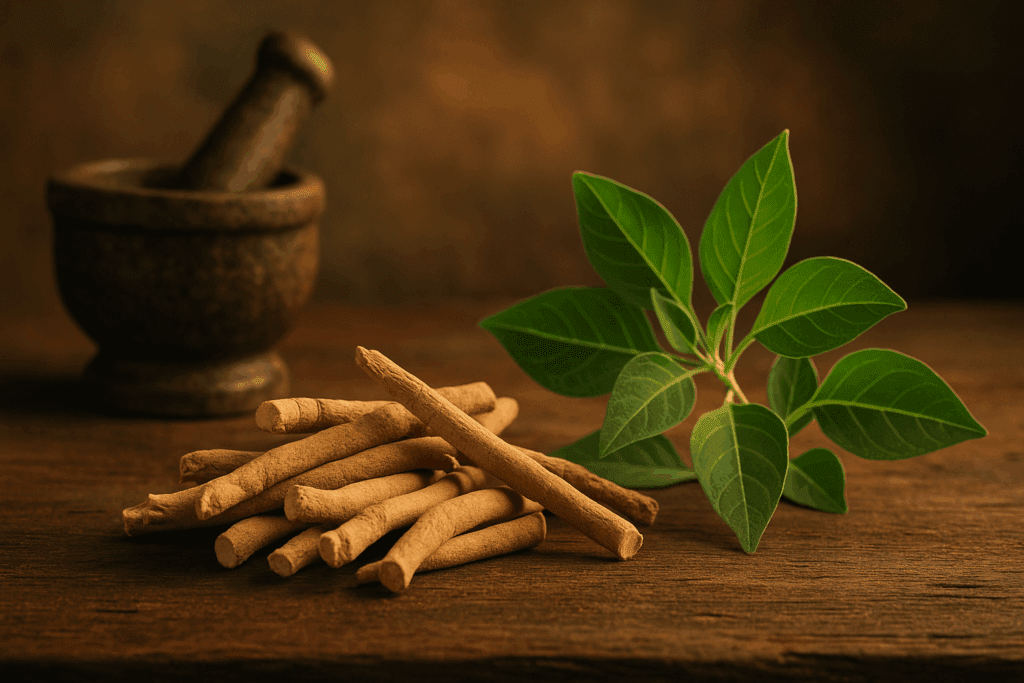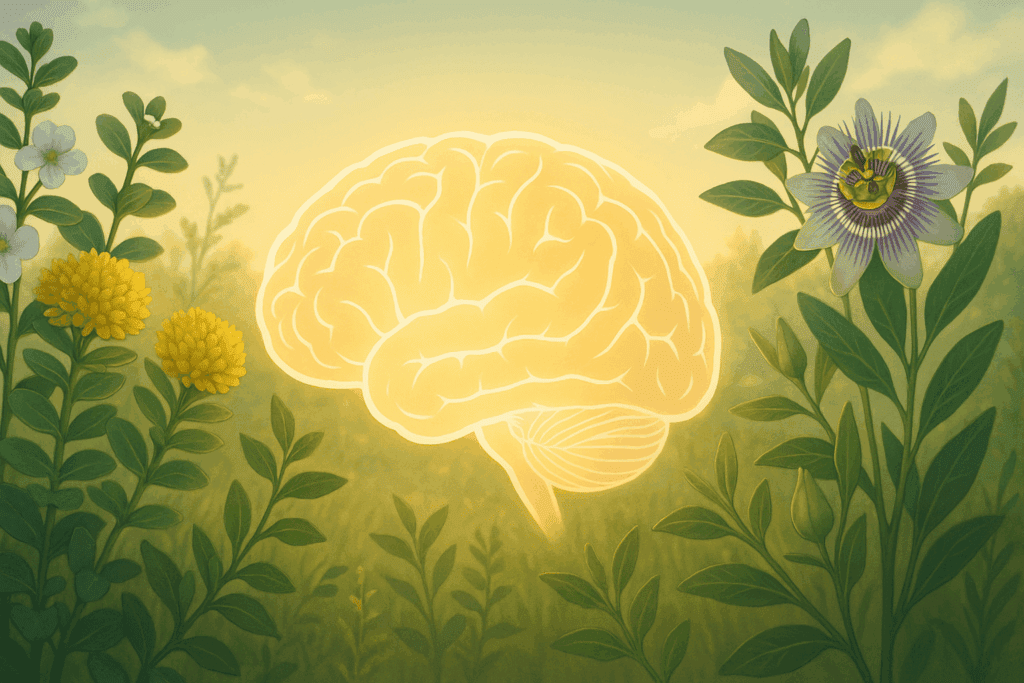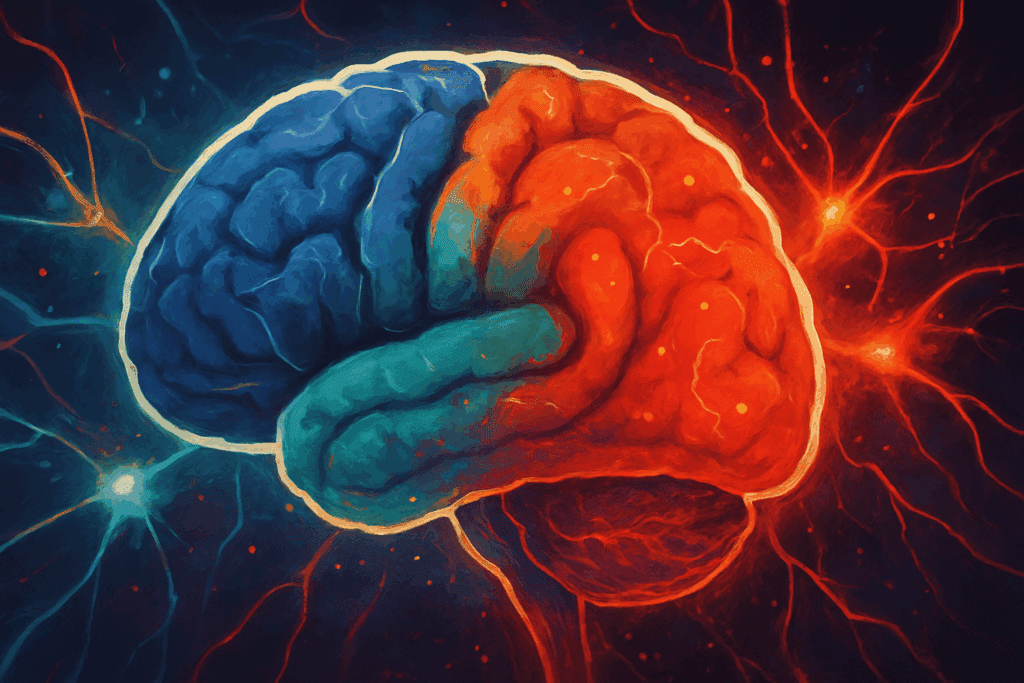Introduction: Exploring Natural Approaches to ADHD and Focus
Attention Deficit Hyperactivity Disorder (ADHD) has long been perceived as a condition best managed by pharmaceuticals. However, an increasing number of people are exploring natural alternatives to enhance cognitive clarity and support focus without relying exclusively on prescription medication. The search for the best herb for ADHD is not only a pursuit grounded in ancient traditions but also one driven by modern scientific inquiry. As interest in integrative health grows, many wonder whether herbs that naturally lower heart rate and calm the nervous system could also support attention regulation. With the rise of people seeking beta blockers natural alternatives, it is timely and essential to evaluate how plant-based options may fit into the broader ADHD management landscape. This exploration will provide an in-depth analysis of natural ingredients known for their nootropic potential and their ability to foster cognitive clarity.
You may also like: Where to Buy Bacopa Monnieri: How to Find Quality Supplements for Cognitive and Memory Support
Understanding ADHD Beyond the Basics
ADHD is characterized by a persistent pattern of inattention, hyperactivity, and impulsivity that interferes with functioning or development. While often associated with childhood, ADHD frequently persists into adulthood, impacting career success, relationships, and overall quality of life. The disorder is rooted in neurobiological factors, involving dysregulation in neurotransmitters like dopamine and norepinephrine. Traditionally, stimulant medications such as methylphenidate and amphetamines are used to manage symptoms. However, these medications can produce side effects such as increased heart rate, anxiety, and sleep disturbances. As a result, many are motivated to seek natural alternatives that promote balance rather than exacerbate underlying nervous system sensitivities. Herbs that lower heart rate and soothe excitatory pathways may offer promising adjuncts to more conventional ADHD management strategies.
Why Herbs for ADHD? A Natural Perspective
Herbal medicine has been an integral part of human health care for centuries, with various cultures documenting the use of plants to enhance focus, memory, and mood. Unlike synthetic drugs that often target a single neurotransmitter pathway, herbs tend to work through multiple mechanisms simultaneously. They may modulate stress responses, support neurotransmitter balance, reduce oxidative stress, and even impact brain-derived neurotrophic factor (BDNF) levels, all of which are relevant to ADHD. Furthermore, the search for beta blockers natural substitutes has led to an increased appreciation of how calming herbs can lower physiological arousal without blunting cognitive function. Thus, when selected and used appropriately, certain herbs may foster a state of calm alertness ideal for individuals with ADHD.

Key Criteria for Evaluating Herbs for ADHD
When evaluating the best herb for ADHD, it is important to consider several criteria beyond anecdotal reports. Scientifically validated efficacy, safety profile, bioavailability, and compatibility with other treatments are critical. Herbs that lower heart rate gently without causing excessive sedation are particularly valuable. Additionally, adaptogenic herbs that improve the body’s resilience to stress may indirectly enhance executive functioning and attention span. The ideal natural ingredient should support neurotransmitter balance, reduce oxidative stress, promote neuroplasticity, and ease symptoms of hyperarousal. In light of these parameters, several herbs consistently emerge as strong candidates for natural ADHD support.
Bacopa Monnieri: Ancient Wisdom Meets Modern Science
Bacopa Monnieri, also known as Brahmi, has been used in Ayurvedic medicine for over 3,000 years to enhance memory, learning, and cognition. Modern research has validated many of these traditional uses, showing that Bacopa extracts can improve information processing speed, attention, and working memory. Bacopa’s active compounds, called bacosides, enhance synaptic communication and protect neurons from oxidative damage. Interestingly, Bacopa also exhibits calming properties that make it a suitable option for those seeking beta blockers natural alternatives. By reducing cortisol levels and supporting parasympathetic nervous system dominance, Bacopa may help those with ADHD achieve a more focused yet relaxed state of mind. Its dual action of cognitive enhancement and stress reduction makes it a particularly promising herb.
Rhodiola Rosea: Balancing Energy and Focus
Rhodiola Rosea is another adaptogen gaining popularity for its ability to balance mood and boost mental stamina. Originating from cold regions of Europe and Asia, Rhodiola has traditionally been used to fight fatigue and enhance resilience under stress. Studies suggest that Rhodiola influences key neurotransmitters involved in focus and motivation, such as serotonin, dopamine, and norepinephrine. Its capacity to stabilize energy levels without overstimulation is especially pertinent for ADHD, where fluctuating arousal states can be problematic. Moreover, Rhodiola can act as a mild herb that lowers heart rate, promoting a balanced physiological state conducive to sustained attention. Its adaptogenic nature supports both physical and mental endurance, making it a versatile option for cognitive clarity.
Ginkgo Biloba: Enhancing Circulation and Cognitive Function
Known for its role in supporting memory and cognitive function, Ginkgo Biloba has been extensively studied for its effects on brain health. Ginkgo improves cerebral blood flow, enhancing oxygen and nutrient delivery to the brain. This can result in better concentration, sharper thinking, and improved working memory—all critical faculties for individuals managing ADHD. Moreover, Ginkgo exhibits antioxidant properties that protect against neurodegenerative changes. While not traditionally classified among herbs that lower heart rate, its circulatory benefits can contribute to a more stable autonomic nervous system response. Ginkgo’s role in enhancing executive function and attenuating cognitive fatigue positions it as a valuable ally in natural ADHD management.

Passionflower: Calming the Overactive Mind
Passionflower (Passiflora incarnata) is revered for its gentle sedative and anxiolytic properties. It has been traditionally used to ease anxiety, insomnia, and restlessness—all common comorbidities of ADHD. By modulating GABA activity, Passionflower promotes a sense of calm without inducing heavy sedation. Its action aligns with the increasing interest in beta blockers natural substitutes, offering a botanical pathway to reduce heart rate and quiet mental hyperactivity. Passionflower can be particularly beneficial during periods of acute stress or when ADHD symptoms are exacerbated by anxiety. Its ability to foster a calm yet alert state makes it a compelling natural option for individuals seeking greater focus.
L-Theanine: The Cognitive Ally from Green Tea
Although technically an amino acid rather than an herb, L-Theanine deserves mention due to its profound cognitive benefits. Found predominantly in green tea, L-Theanine promotes alpha brain wave activity, associated with a state of relaxed alertness. Research shows that L-Theanine can improve attention, reduce mental fatigue, and enhance working memory—attributes highly relevant for ADHD. Additionally, L-Theanine gently lowers heart rate and blood pressure, resonating with the therapeutic goals of herbs that lower heart rate. Combining L-Theanine with low doses of caffeine has been shown to synergistically enhance focus without causing jitteriness, making it a particularly effective option for those navigating the attentional challenges of ADHD.
Ashwagandha: Stress Reduction and Cognitive Support
Ashwagandha (Withania somnifera) is a cornerstone of Ayurvedic medicine, famed for its adaptogenic and neuroprotective qualities. Chronic stress can exacerbate ADHD symptoms, impairing focus and emotional regulation. Ashwagandha’s ability to lower cortisol, support thyroid function, and stabilize mood makes it highly relevant for ADHD management. Moreover, Ashwagandha is among the herbs that lower heart rate gently, promoting parasympathetic dominance. Emerging studies suggest that Ashwagandha may enhance executive functioning and working memory, offering a holistic approach to cognitive enhancement. Its multifaceted benefits highlight why it continues to gain recognition among those seeking natural approaches to focus and mental clarity.
Valerian Root: Easing Hyperactivity and Promoting Restful Sleep
Sleep disturbances are common among individuals with ADHD, and poor sleep can significantly impair cognitive performance. Valerian root has been traditionally used to promote restful sleep and ease nervous tension. By modulating GABA receptors, Valerian fosters a sense of relaxation and may improve sleep architecture. While primarily known for its sedative effects, Valerian also contributes to a lower resting heart rate, fitting well within the category of herbs that lower heart rate naturally. Improved sleep quality can, in turn, enhance daytime focus, emotional regulation, and executive functioning—making Valerian an important consideration in comprehensive ADHD support.

Omega-3 Fatty Acids: Essential Brain Nutrients
Though not an herb, Omega-3 fatty acids warrant discussion due to their profound impact on brain health. Research consistently shows that individuals with ADHD often have lower levels of essential fatty acids, particularly EPA and DHA. Supplementing with high-quality fish oil can improve attention span, reduce hyperactivity, and support mood regulation. Omega-3s also exhibit anti-inflammatory properties, promoting overall brain resilience. In the broader context of natural approaches, combining herbs with Omega-3 supplementation can create synergistic effects that optimize cognitive clarity and emotional stability.
Integrative Strategies: Combining Herbs for Maximum Benefit
Rather than relying on a single herb, many practitioners advocate for a synergistic approach. Combining adaptogens like Rhodiola with calming agents such as Passionflower may offer balanced support tailored to individual needs. Furthermore, integrating lifestyle interventions such as mindfulness practices, regular physical activity, and dietary optimization can amplify the effects of natural ingredients. Those exploring beta blockers natural alternatives often find that a multifaceted strategy yields the most sustainable results. Thoughtful combination of herbs that lower heart rate with cognitive enhancers can create a holistic framework that addresses the diverse challenges of ADHD.
Practical Considerations: Safety, Dosage, and Professional Guidance
While herbs offer exciting possibilities, it is essential to approach their use with caution and professional oversight. Individual responses can vary based on genetics, existing medical conditions, and concurrent medications. Some herbs may interact with pharmaceutical treatments, altering their efficacy or side effect profile. Consulting with a healthcare provider knowledgeable in integrative medicine ensures that natural therapies are used safely and effectively. Dosage, timing, and sourcing quality are critical factors that can influence outcomes. High-quality, standardized extracts provide more reliable results compared to unregulated supplements. By taking a mindful and informed approach, individuals can harness the power of natural ingredients while minimizing risks.

Frequently Asked Questions (FAQ): Best Herb for ADHD and Natural Cognitive Support
1. Can herbs that lower heart rate also improve focus for individuals with ADHD?
Yes, certain herbs that lower heart rate can enhance focus for individuals with ADHD by promoting a calm yet alert mental state. These herbs help regulate the autonomic nervous system, shifting it toward parasympathetic dominance, which can reduce impulsivity and mental agitation. Unlike traditional stimulants that often elevate heart rate, using herbs lower heart rate strategies may offer a more sustainable and gentle approach to enhancing cognitive clarity. For example, Passionflower and Ashwagandha are known for their calming effects without causing sedation. Integrating beta blockers natural alternatives into ADHD management plans can create a foundation for steadier focus and emotional resilience.
2. How do beta blockers natural options differ from pharmaceutical beta blockers for managing stress-related ADHD symptoms?
Natural beta blockers such as herbal remedies typically work by supporting the body’s intrinsic stress-response pathways, rather than directly blocking adrenergic receptors like pharmaceutical beta blockers. Herbs lower heart rate more subtly by enhancing parasympathetic activity and reducing the overproduction of stress hormones like cortisol. In contrast, prescription beta blockers can sometimes cause fatigue, cold extremities, or even mood changes. Choosing beta blockers natural alternatives like Hawthorn berry or Passionflower can help manage the physiological aspects of stress without blunt-force intervention. Many users appreciate the nuanced modulation that herbs offer, allowing for symptom relief without feeling emotionally dulled.
3. Are there specific combinations of herbs that enhance the benefits of beta blockers natural strategies for ADHD?
Absolutely, combining adaptogens with calming herbs can maximize the benefits of beta blockers natural strategies for ADHD. For instance, pairing Rhodiola Rosea with Passionflower may enhance cognitive stamina while stabilizing heart rate and emotional reactivity. Herbs lower heart rate such as Valerian can be used in evening protocols to support restful sleep, while Bacopa Monnieri can be employed during the day to sharpen focus. This layering approach acknowledges that ADHD symptoms often fluctuate throughout the day and that a dynamic herbal plan can more effectively meet changing cognitive and emotional demands. Customizing herb combinations also allows for personal responsiveness and minimizes potential side effects.
4. Can herbs lower heart rate too much and cause problems for individuals with ADHD?
While herbs lower heart rate naturally and usually gently, it is important to monitor individual responses to avoid excessive reductions in heart rate or blood pressure. Herbs like Hawthorn and Motherwort have strong calming effects, but when combined with other supplements or medications, they could potentiate effects beyond intended thresholds. Beta blockers natural options should be used with professional guidance, especially if an individual is also taking pharmaceuticals. It is critical to start with conservative dosages and adjust based on real-time feedback rather than assuming that more is better. Regular monitoring ensures that the therapeutic benefits are achieved without compromising cardiovascular health.
5. Are there emerging herbs not yet well-known that show promise as beta blockers natural solutions for ADHD?
Yes, several lesser-known botanicals are gaining attention for their potential as beta blockers natural options. One example is Lemon Balm (Melissa officinalis), which exhibits mild heart rate-lowering effects along with anxiolytic properties. Another promising herb is Blue Vervain, traditionally used to soothe nervous tension and regulate autonomic function. These emerging herbs lower heart rate and reduce hyperarousal, offering exciting new possibilities for ADHD support. Although more clinical research is needed, preliminary studies and centuries of traditional use provide compelling reasons to explore these options under professional supervision. Such innovations continually expand the toolkit for natural ADHD management.
6. How does lifestyle modification enhance the effectiveness of herbs that lower heart rate for ADHD?
Integrating lifestyle changes with the use of herbs lower heart rate can significantly enhance outcomes for ADHD. Practices such as mindfulness meditation, controlled breathing exercises, and regular aerobic exercise all promote parasympathetic activity, complementing the calming effects of herbs. When combined with beta blockers natural approaches, these lifestyle interventions create a powerful synergy that stabilizes mood, sharpens attention, and fosters emotional regulation. Practical strategies like reducing caffeine intake and maintaining consistent sleep schedules further reinforce the benefits. Holistic ADHD management acknowledges that herbs work best as part of a larger ecosystem of health-promoting behaviors.
7. Is it safe to use herbs that lower heart rate in children and adolescents with ADHD?
The use of herbs lower heart rate in pediatric populations requires extra caution but can be safe with proper guidance. Children and adolescents have developing nervous systems that may react differently to herbal interventions compared to adults. Beta blockers natural alternatives such as Lemon Balm or Chamomile are generally well-tolerated in younger populations when administered in age-appropriate dosages. However, it is vital to consult with a pediatric integrative physician to customize the approach based on the child’s specific needs and health profile. Dosing, monitoring, and quality of herbal products are key factors in ensuring safety and effectiveness for younger users.
8. How quickly can someone expect results from using beta blockers natural herbs for ADHD support?
The timeframe for experiencing benefits from beta blockers natural herbs can vary widely depending on individual biology, herb choice, dosage, and consistency of use. Some herbs lower heart rate and promote noticeable calmness within hours, such as Passionflower, while others like Bacopa Monnieri may require several weeks to exert measurable cognitive effects. Unlike synthetic medications that produce rapid changes, herbal approaches often work by gently recalibrating underlying physiological processes. Patience and regularity are essential when working with natural interventions, as cumulative benefits tend to yield more sustainable improvements. Setting realistic expectations helps maintain motivation during the initial stages of herbal therapy.
9. Can beta blockers natural herbs be combined with conventional ADHD medications?
Combining beta blockers natural herbs with conventional ADHD medications can be beneficial but requires careful professional oversight to avoid unwanted interactions. For example, using herbs lower heart rate such as Hawthorn alongside stimulant medications needs careful monitoring, as stimulants typically raise heart rate. In some cases, complementary use can mitigate stimulant side effects like anxiety or insomnia, creating a more balanced therapeutic experience. However, it is crucial to disclose all supplements to healthcare providers to tailor a safe and effective regimen. Strategic integration can allow individuals to leverage the best aspects of both conventional and natural therapies.
10. What should consumers look for when choosing herbs that lower heart rate for ADHD support?
Selecting high-quality herbs lower heart rate requires careful attention to sourcing, formulation, and third-party testing. Ideally, consumers should choose organic, sustainably harvested herbs verified for potency and purity. Beta blockers natural supplements should list active constituents (such as standardized bacosides or flavonoid content) to ensure therapeutic efficacy. Avoiding products with unnecessary additives, fillers, or artificial preservatives can further safeguard health outcomes. Consulting brands that specialize in evidence-based herbal formulations ensures that users receive the intended benefits without exposure to contaminants. Taking a discerning approach to product selection honors both safety and the potential power of natural ADHD solutions.

Conclusion: Harnessing Nature’s Pharmacy for Focus and Cognitive Clarity
As interest in natural health solutions continues to grow, the search for the best herb for ADHD reflects a broader movement toward integrative, personalized care. From Bacopa Monnieri’s memory-enhancing effects to Passionflower’s calming influence, nature offers a rich pharmacy of possibilities. Herbs that lower heart rate and promote physiological balance hold particular promise for those seeking beta blockers natural alternatives. However, it is crucial to approach herbal interventions thoughtfully, integrating them into a broader lifestyle strategy that includes diet, exercise, sleep hygiene, and stress management. With careful selection and professional guidance, natural ingredients can empower individuals with ADHD to cultivate greater focus, cognitive clarity, and emotional resilience. As research continues to validate these ancient remedies, the bridge between traditional wisdom and modern science grows stronger, offering hope and new possibilities for those on the journey toward optimal brain health.


